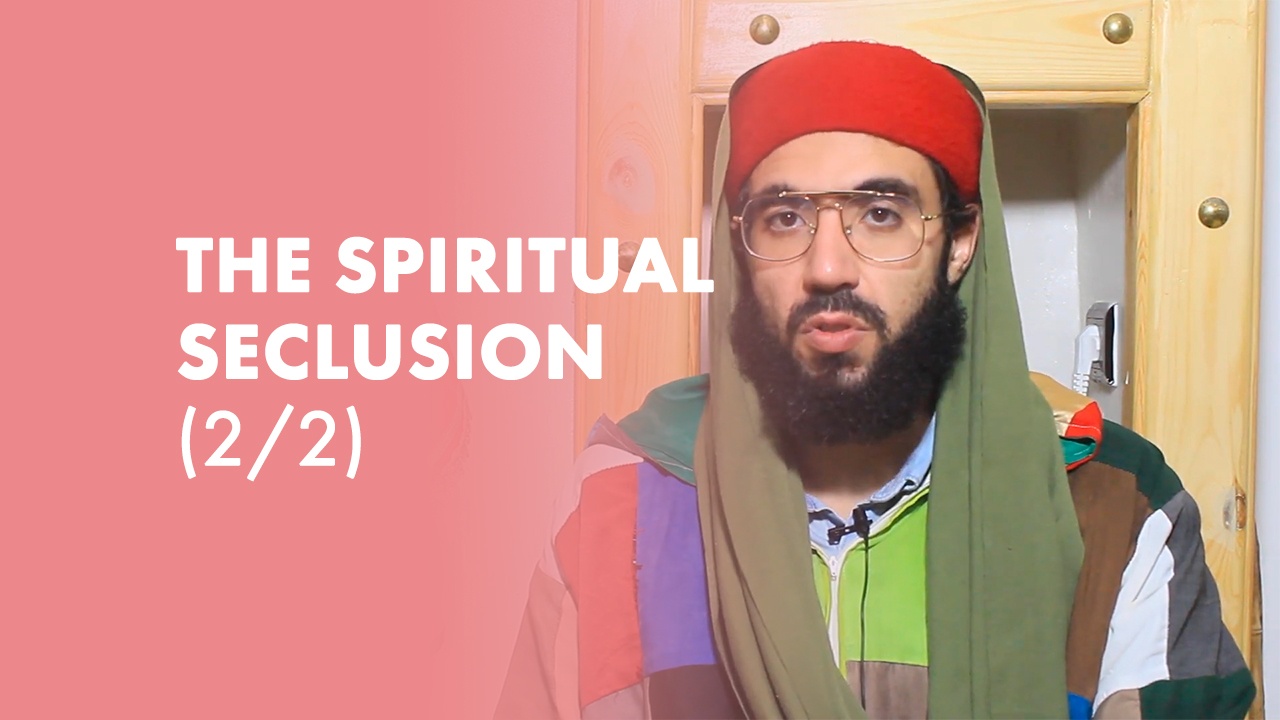بسم الله الرحمن الرحيم
و الصلاة و السلام على أشرف المرسلين
و على اله و اصحابه أجمعين
On the authority of Abu Huraira who said: The Messenger of Allah ﷺ said:
“Allah the Almighty has said, ‘Whoever has mutual animosity with a friend (wali) of Mine, even for me, I declare war upon him. My servant does not draw near to Me with anything more beloved to Me than the religious duties that I have imposed upon him; and My servant continues to draw near to Me with supererogatory work such that I love him. And when I love him, I am his hearing with which he hears, his seeing with which he sees, his hand with which he strikes, and his leg with which he walks. Were he to ask of Me, I would surely give him; and were he to ask Me for refuge, I would surely grant him it.”
[Recorded in al-Bukhari].
This hadith is extremely important and this is why the hadith was chosen as one of the 40 hadith of Imam Nawawi. These 40 hadith assemble the founding principles of the faith.
Even Imâm ach-Chawkâniy (rahimahuLlâh) and Imâm as-Suyoûtiy (rahimahuLlâh) wrote books about the “hadith ul-wali”, respectively “qatru l-waliy bicharhi hadîthi l-waliy” and “al-qawlu l-jaliy fî hadîthi l-waliy”.
The first part of the hadith designates any person who shows animosity to one of the awliya’ of Allâh, even for Allah ﷻ, it means even if his intention is to defend his faith against what he considers as an innovation and to serve Allâh ﷻ … and no one but Allâh ﷻ knows who are the awliya’ and this is why the founding principle of our tariqa is in the wisdom of these words :
“Istahqir nafsak wa ‘adhdhim ghayrak”
“Debase yourself and enhance your neighbour”
Do not see yourself as someone who is more privileged than others because the sirr (secret) of the divine omnipotense is really amazing and you do not know the one who will die on the good way and the one who will die on the worst way.
Indeed, the story of Sayidinâ Âdam (alayhi s-salâm) and Iblis contains primordial teaching: The both made mistake.
The Mistake of Sayiduna Adam (alayhi s-salâm) was the reason of his elevation and the mistake of Iblis was the reason of his banishment.
It means we do not have to judge the servant according to his deeds but we have to judge the decision of Allâh ﷻ.
Indeed, Allâh can be angry with His servant just for a sin and He also can accept his servant for only one hassanate, the Almighty who no one can fairly appreciate Him.
Allâh ﷻ used the name « Waliy” to define Himself :
- “Allah is the waliy of those who believe. He brings them out from darknesses into the light. And those who disbelieve – their allies are Taghut. They take them out of the light into darknesses. Those are the companions of the Fire; they will abide eternally therein.” [Surah al-Saqara, verse 257].
In another verse, He assigned the same Name to his creation which He loved and choose :
- “Unquestionably, [for] the allies (waliy) of Allah there will be no fear concerning them, nor will they grieve” [Surah Yoûnus, verse 62].
The name “waliy” have been divided by Allâh (subhânahu wa ta’âla) between Himself and His servant who possesses a part of the divine name al-Waliy on the condition that He went out from the darkness of the Tâghût of the nafs to The Haqq ar-rabbâniy (divine) Light.
This Light that the veiled hearts by the insouciance denigrated. Those hearts have no part to the divine presence. Abî sa’îd al-Khudrî (radiAllâhu anhu) reported that the Messenger of Allâh ﷺ said :
“Fear the perception of the believer for he sees with the light of Allah the Almighty the Majestic.” Then he read: “Surely! Therein is indeed a sign for the believers.” (Surah al Hijr, verse 77). [Jâmi3 ut-Tirmidhiy].
Imâm ach-Chawkâniy (rahimahuLlâh) said that those who refused the fact that the ‘awliyah can have revelation (mukâchafât) according the reality are wrong.
On the contrary, the mukâchafât are a door opened by the messenger of Allâh ﷺ. Indeed, the Prophet Muhammad ﷺ said:
- “There were among those who came before you individuals spoken to. If anyone among my nation is one of these, it is surely Umar.”
And in another version :
- “There were among those who came before you among the Jews men who were spoken to without being prophets. If there are any such among my nation, it is Umar.”
[al-Boukhâriy et Muslim].
What is a Waliy ?
The waliy is someone who had his chest splited by the alif of the tawhid , his heart have been cleaned by the Light of the faith in the islam bath. The waliy possesses nothing exept the rights of his almighty Lord, he can see only His magnificence and he only wants the manifestation of His being.
Imâm ibn ‘atâ’iLlâh al-sakandariy (ق) said in one of his aphorism (hikam):
The cosmos is all darkness
It is illumined only by the manifestation of God in it.
whoever sees the Cosmos and does not contemplate Him
in it or by it or before it or after it is in need of light
and is veiled from the sun of gnosis
by the clouds of created things.
15That which shows you the existence of His Omnipotence
Is that He veiled you from Himself
By what has no existence alongside of Him.
Allâh ﷻ said:
“Allah will raise those who have believed among you and those who were given knowledge, by degrees. And Allah is Acquainted with what you do” [Surah al-Mujâdalah, verse 11].
Sidi Ahmad ibn ‘Ajîba (ق) said in the tafsîr of this verse:
“Allâh raises those who were given the knowledge of the divine Essence (adh-dhât) through the kachf and the vision (mouchâhada), 700 degrees above the expert of charî’a who is himself raised 700 degrees above the ignorant and Allâh raises the ‘âreef bi-Llâh (knowers by Allâh) 700 degrees above the scholar.
People are divided into four category: The highest one is the categoty of the awliya’ and the ‘âreefûn bi-Llâh then the scholar then the sâlihun (pious) and then the common believers.
The word “awliya” refers to someone that Allâh hounoured by meeting the shaykh of Tarbiya, until he knows the maqam (station) of fana’ (extinction) and the maqam of baqa (persistense). The Shaykh of tarbiya will take him off the veils of the creation and will show him his Creator and then he will become one of the muqarrabûn and siddîqoûn. The word “scholar” refers to someone who practices what he learned and who only worships Allâh.”
Then Sidi Ahmad ibn ‘Ajîba (ق) said:
“Some people adds concerning the prevalence of the ‘areef upon the scholar: the words of the ‘areef are upon the words of the scholar. It means when the areef talks about stations and certainty he only talks about what he saw (by vision) and what he really lived while the scholar talks about the stories he read.
The scholar will order you to practice while the ‘areef will get you out of illusions of the action, you who are nothing but fana’. The scholar teaches you the law which are an obligation for all muslims while the ‘areef calms you down by the visions which will guide you to the knowledge of Allâh. The scholar teaches you the knowledge of books while the ‘areef shows you the Essence (dhât) of al-Hayy al-Qayyoûm. The scholar shows you the consequence while the ‘areef shows you the creator of the concequence.
The scholar ask you to consider the wasâit (the messengers, the prophets, the saints …) while the ‘areef guides you to the One who order those wasâ’it. The scholar warns you against the deceptive appearance whils the ‘areef warns you to be satisfied by the lights and he will guide you to the Hadrat ul-asrâr.
The scholar warns you against the visible shirk while the ‘areef cleans you from the hidden shirk…this is just an exemple of the differences between the scholar and the ‘areef. There are others”.
A man came to Abu Darda’ while he was in Damascus.
Abu Darda’ asked him, “What has brought you here, my brother?” He replied, “A hadith which you relate from the Prophet ﷺ“.
Abu Darda’ asked, “Have you come for some worldly need?” He replied “No.”
“Have you come for business?” He replied “No.”
“You have come only to seek this hadith?” He said “Yes.”
Abu Darda’ then said “I heard the Messenger of Allah ﷺ say:
“Whoever travels a path seeking sacred knowledge, Allah will place him on a path leading to Paradise. The angels lower their wings for the student of sacred knowledge, pleased with what he is doing. The creatures in the heavens and earth seek forgiveness for the student of sacred knowledge, even the fish in the water. The superiority of the knower over the devout worshipper is like the superiority of the full moon over the other heavenly bodies. The knowers are the heirs of the prophets. The prophets leave no money as a bequest, rather they leave knowledge. Whoever seizes it has taken a bountiful share.”[Imam Ahmad, Abu Dawud, Tirmidhl, and Ibn Majah].
This hadith praises the ‘âreef bi-Llâh.Indeed, what kind of Knowledge could be more precious and noble than the Knowledge by Allâh (al’ilmu bi-Llâh).
The knowledge of the obligations and the legal opinions is noble but the knowledge by Allâh (knowledge of the attributes and the names of Allâh) is more noble.
The knowledge by Allâh is the mother of all knowledges. This knowledge is named «’ilmu l-‘oummiyah» and it is the knowledge of the knowledge of Allâh ﷻ and his inheritors who are named ahlu-Llâh
La science par Allâh est la maîtresse des sciences, elle est appelée “’ilmu l-‘oummiyah”, et il s’agit de la science du Messager d’Allâh dont ont hérité.
Allâh ﷻ said: “It is He who has sent down to you, [O Muhammad], the Book; in it are verses [that are] precise – they are the foundation of the Book – and others unspecific. As for those in whose hearts is deviation [from truth], they will follow that of it which is unspecific, seeking discord and seeking an interpretation [suitable to them]. And no one knows its [true] interpretation except Allah. But those firm in knowledge say, “We believe in it. All [of it] is from our Lord.” And no one will be reminded except those of understanding” [Surah Âlu ‘Imrân, verse 7]
And indeed, the waliy is the one who is totally ingrained in the knowledge (ar-râssikh fi d-dîn) because he knows Allâh. For him there are no confusion on the Haqâ’iq (realities) of the Jabarûte and the tajalliyâtes of Malakût and the images of the mulk.
He is the expert of the divine secrets and the degrees of the light and the reality of the symbols. He can describe the soul (rou7) but his secret is impenetrable. He sails in the pre-eternal word.



